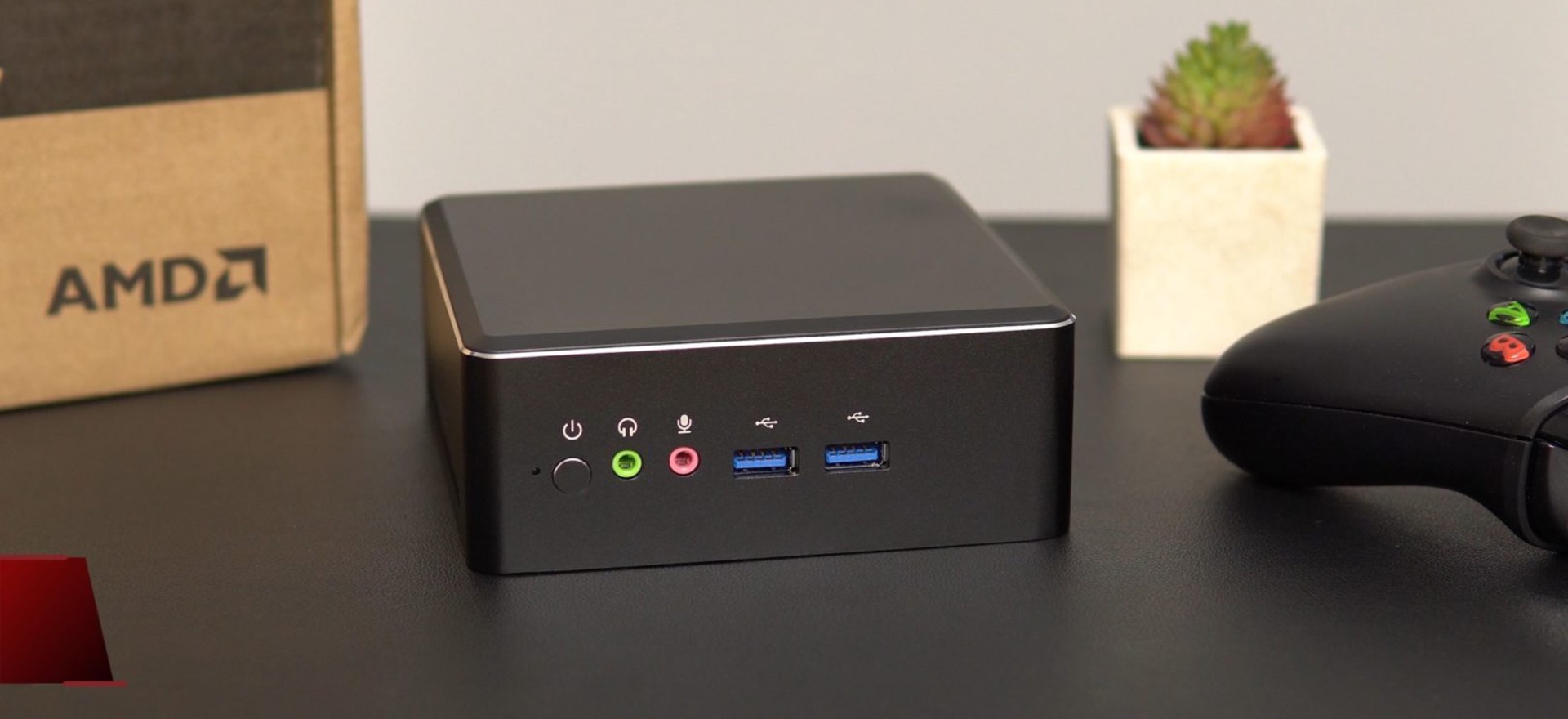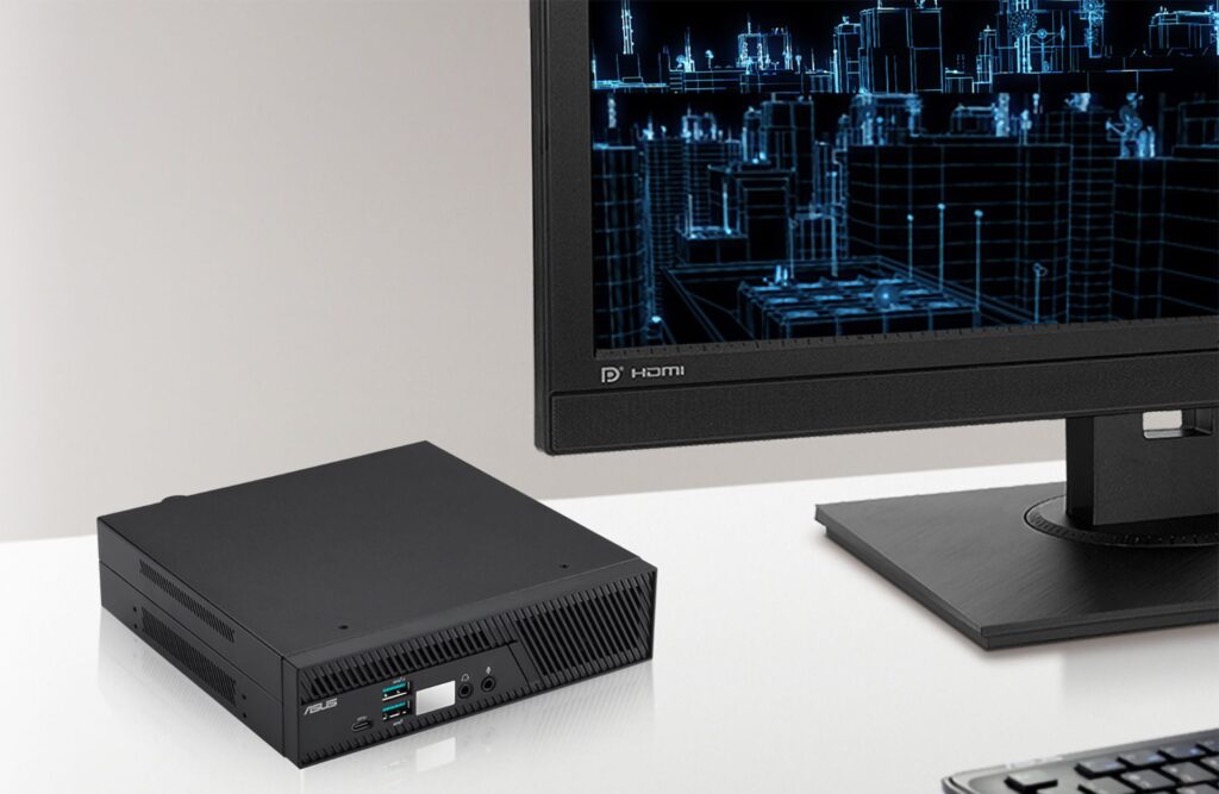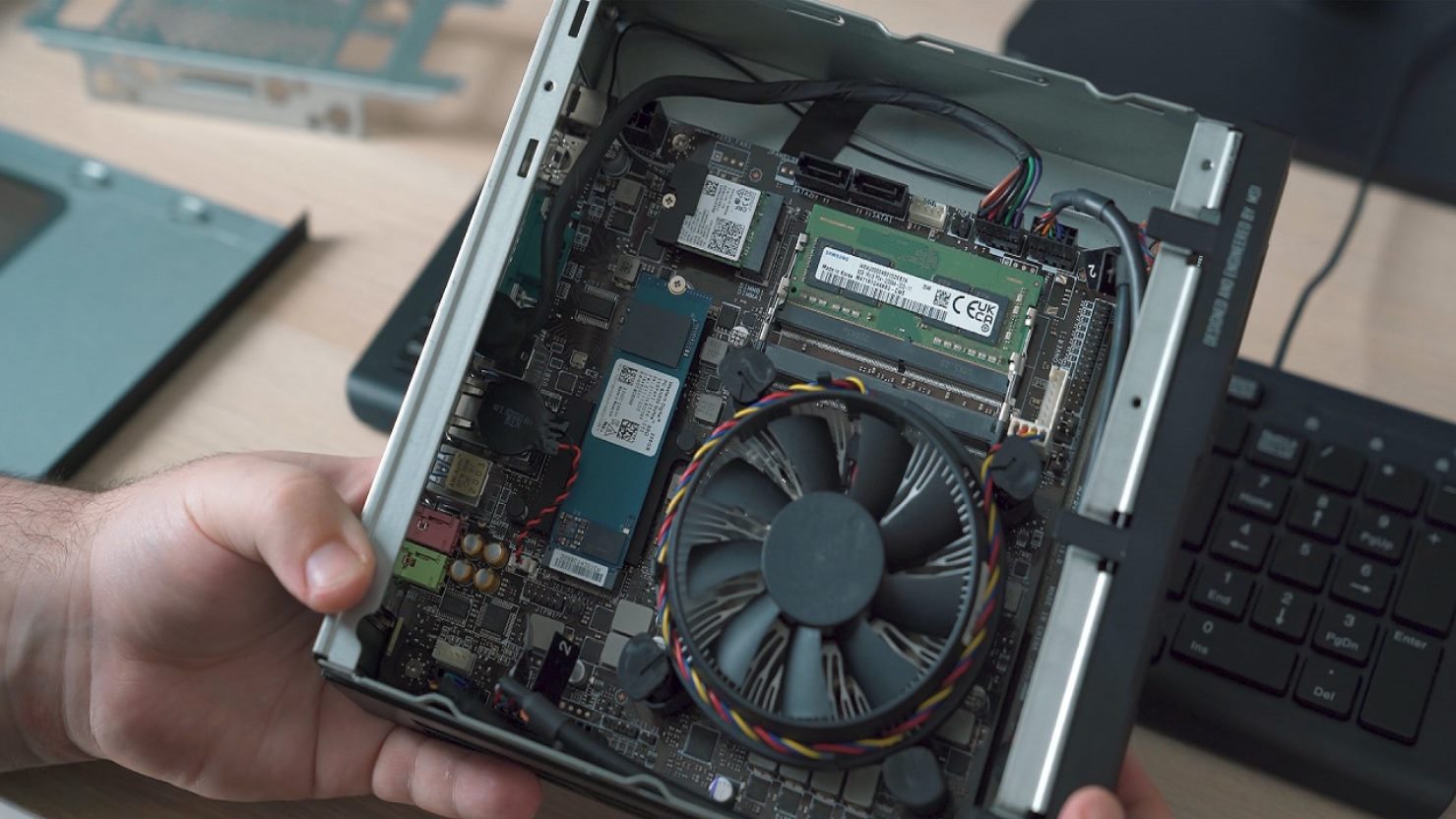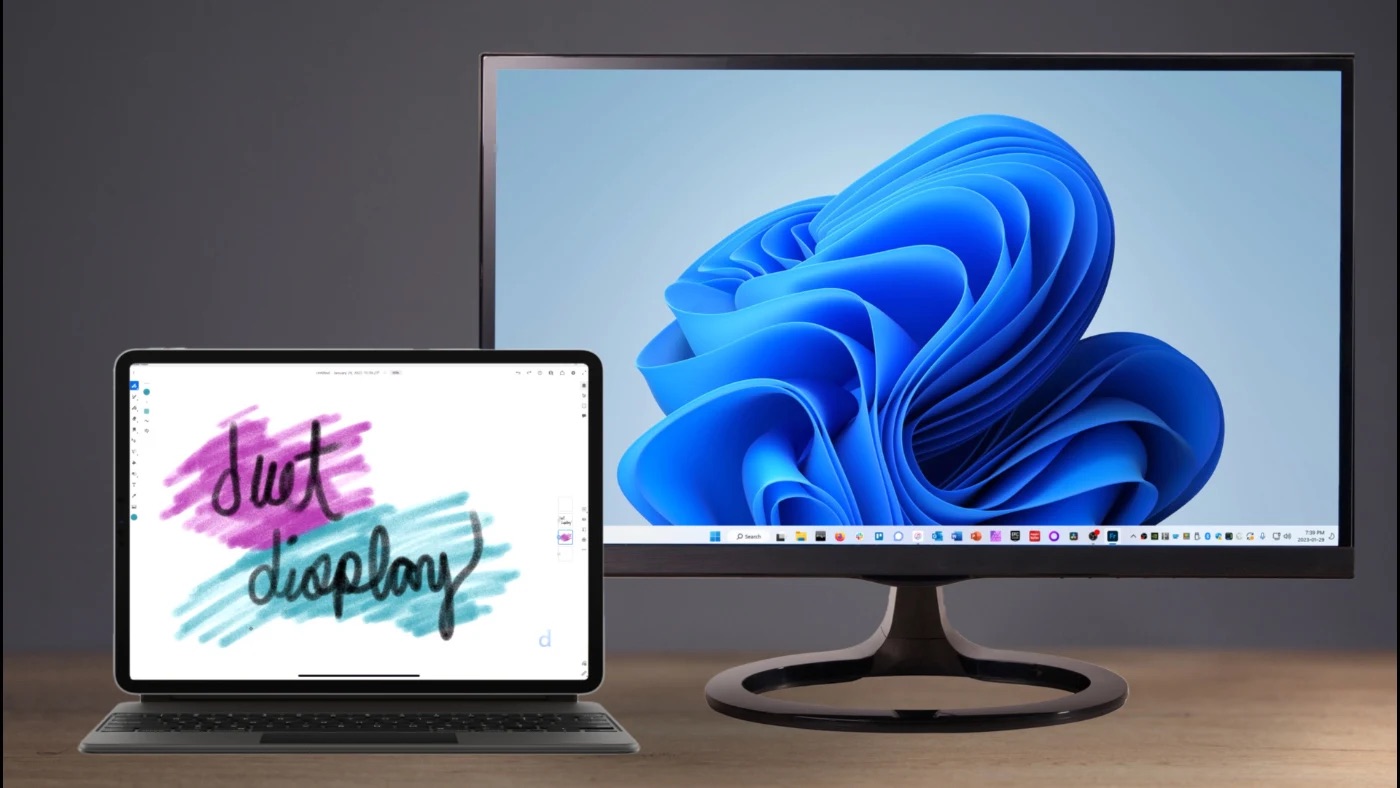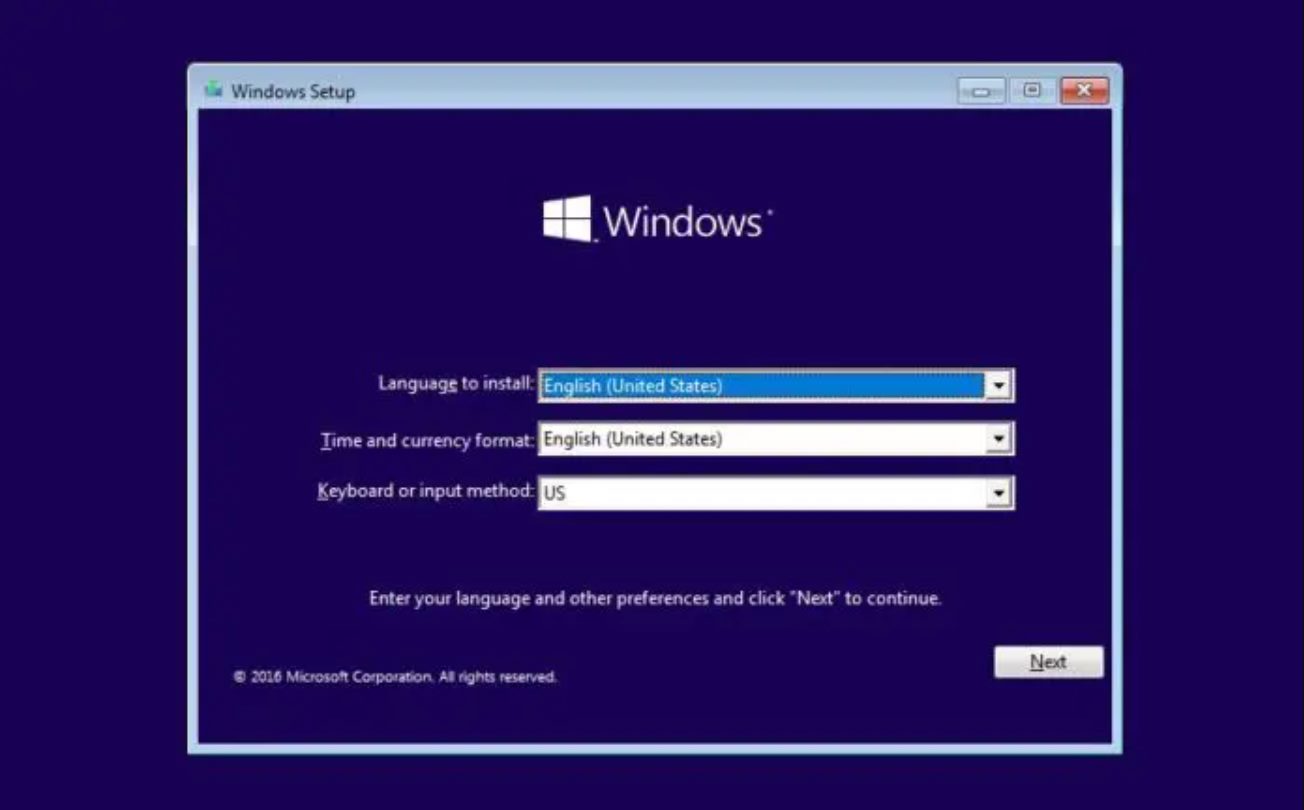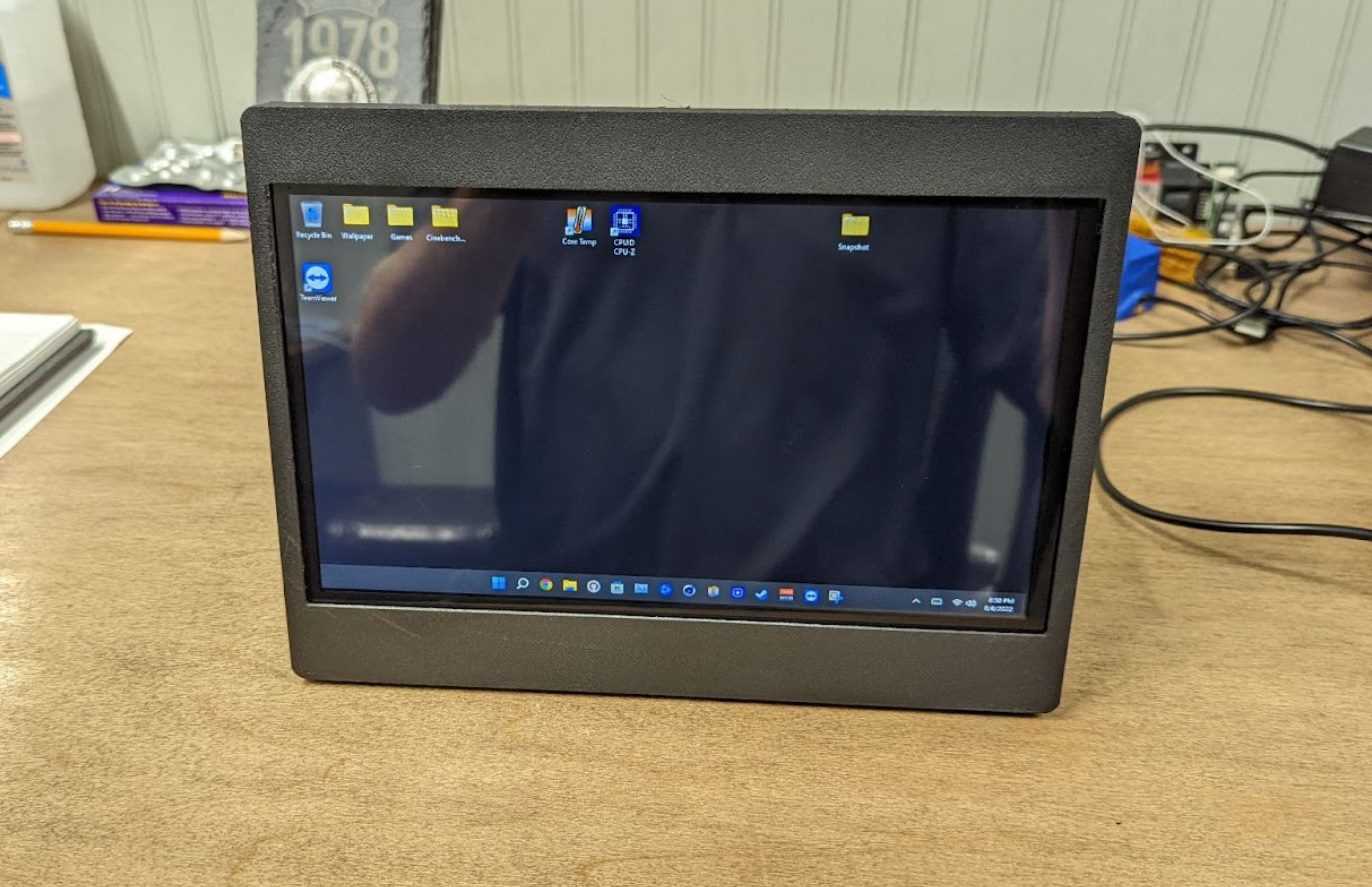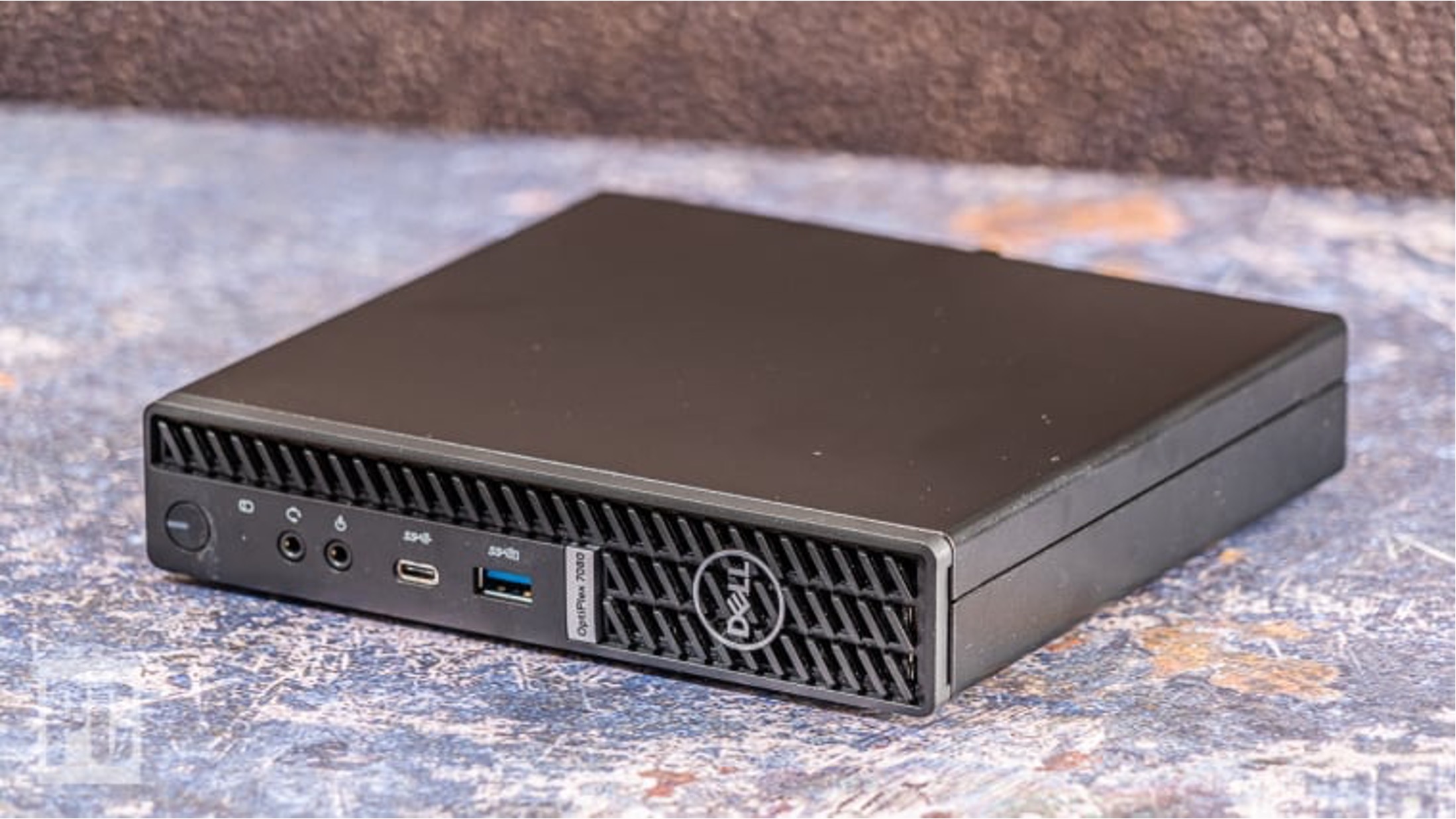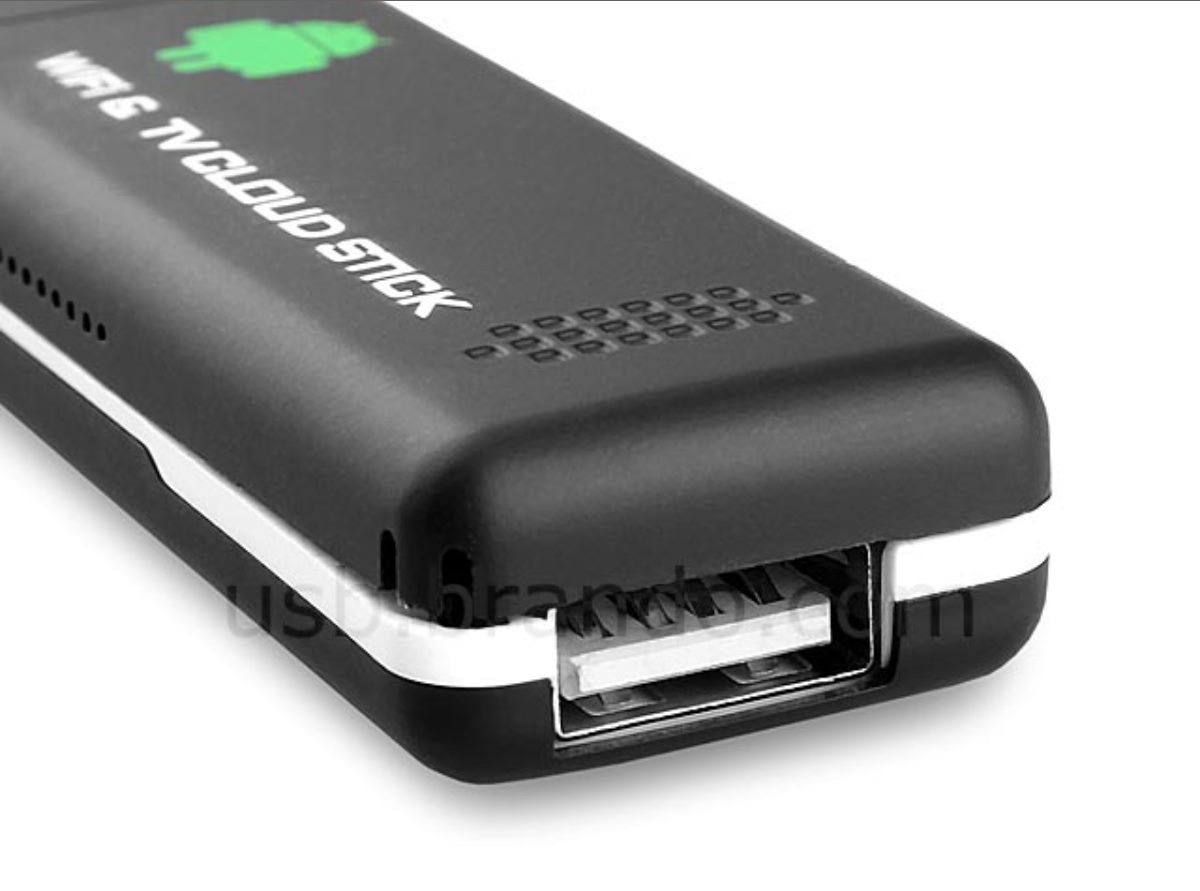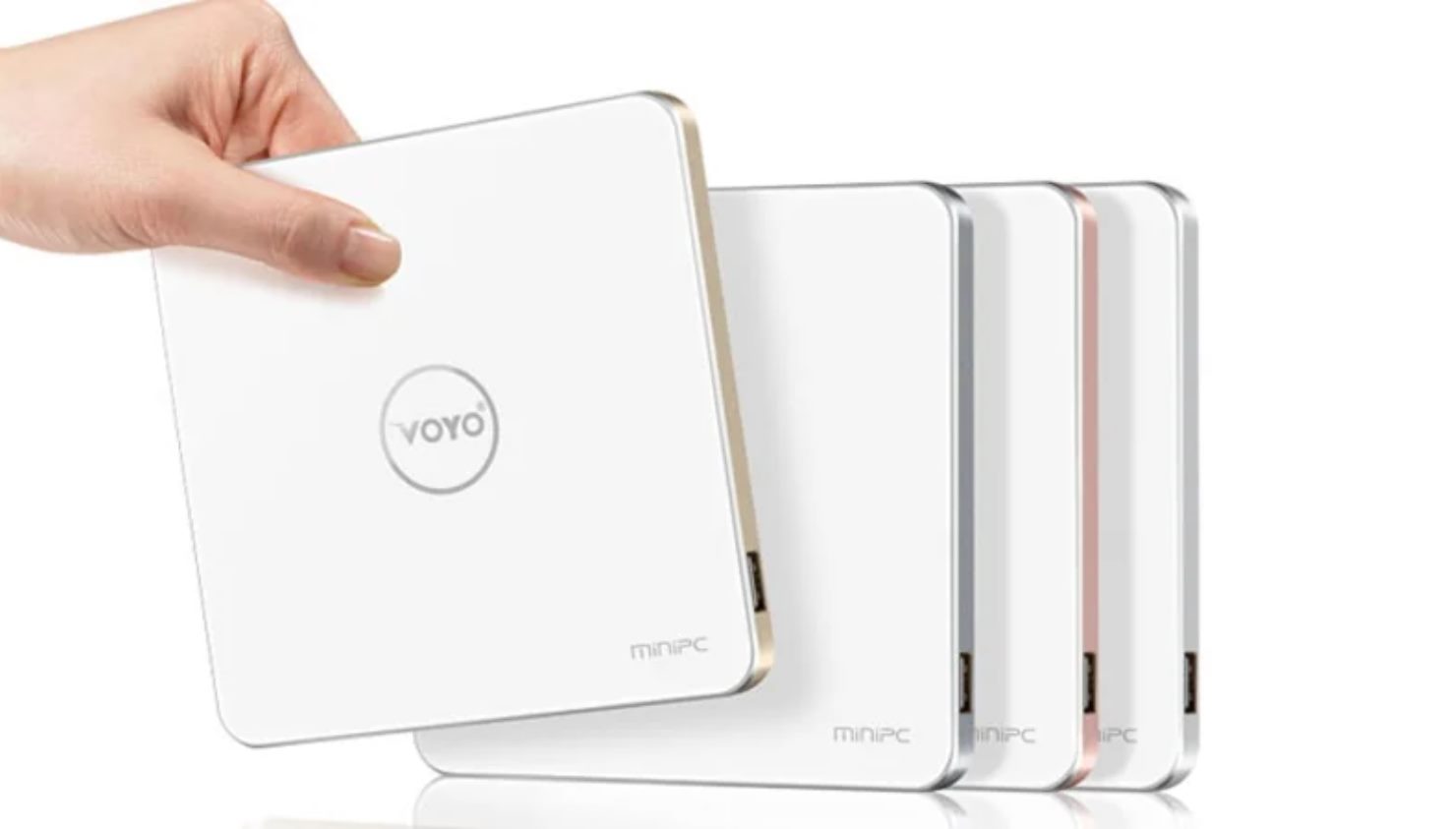Introduction
Welcome to the world of mini PCs, where power and performance are scaled down to fit in the palm of your hand. These compact computing devices have gained popularity in recent years, offering a range of functionalities that cater to various needs and lifestyles.
A mini PC, also known as a mini desktop or small form factor (SFF) PC, is a pint-sized computer that packs all the essential components of a traditional desktop into a smaller, more portable package. Despite their small size, these devices are capable of delivering impressive performance, making them a popular choice for a wide range of applications.
Whether you’re a gamer, a creative professional, a student, or someone who simply needs a space-saving computing solution, mini PCs offer a convenient and efficient alternative to traditional desktop computers. They are ideal for those who value flexibility, portability, and space optimization.
In this guide, we will explore the world of mini PCs in detail, discussing their advantages and disadvantages, as well as the key factors to consider when choosing the best mini PC for your needs. We will also highlight some of the top mini PCs available in the market, catering to various use cases such as gaming, productivity, home theater, multimedia, and portability.
By the end of this guide, you will have a comprehensive understanding of mini PCs, enabling you to make an informed decision and find the perfect mini PC that aligns with your requirements and preferences.
What Is a Mini PC?
A mini PC is a compact computing device that brings the power and functionality of a traditional desktop computer into a much smaller form factor. It is designed to offer convenience, portability, and versatility without compromising on performance.
Unlike traditional desktop towers, mini PCs are significantly smaller and lighter, making them easy to transport and place in various settings. They typically have a small footprint and can be mounted on the back of a monitor or tucked away discreetly on your desk.
Despite their diminutive size, mini PCs house all the essential components of a fully functional computer, including a processor, memory (RAM), storage (SSD or hard drive), graphics card, and connectivity options such as USB ports, HDMI, and Wi-Fi. Some models also come with built-in speakers, webcams, and other multimedia features.
Mini PCs run on operating systems like Windows, MacOS, or Linux, giving users the flexibility to use familiar software and applications. They can handle a wide range of tasks, from web browsing and document editing to media streaming and casual gaming.
These miniature powerhouses are not limited to personal use. They also find utility in businesses, schools, and other professional environments, where space constraints and mobility are key considerations. Mini PCs can serve as dedicated workstations, digital signage displays, server nodes, media centers, or even IoT (Internet of Things) devices.
While mini PCs may not match the raw power and expandability of their full-sized counterparts, they offer a compelling alternative for those seeking a compact, efficient, and cost-effective computing option. They consume less power, generate less heat, and operate quietly, making them ideal for small offices, dorm rooms, living rooms, and other shared spaces.
In summary, a mini PC is a small but capable device that delivers the power and functionality of a traditional desktop computer in a compact package. Its portability, space-saving design, and versatility make it an attractive choice for users who prioritize convenience and performance.
Advantages and Disadvantages of Mini PCs
Mini PCs offer a range of advantages that make them a compelling choice for many users. However, like any technology, they also have their limitations. Let’s explore the advantages and disadvantages of mini PCs to help you make an informed decision.
Advantages:
1. Space-saving: Mini PCs are significantly smaller than traditional desktop computers, allowing you to save valuable desk space. They are perfect for small apartments, dorm rooms, or offices with limited space.
2. Portability: Mini PCs are compact and lightweight, making them easy to carry and transport. Whether you need a computer for work, travel, or presentations, a mini PC can be your reliable companion.
3. Power efficiency: Mini PCs are typically designed to be energy-efficient, consuming less power than traditional desktops. This not only helps save on electricity bills but also reduces the environmental impact.
4. Quiet operation: Due to their smaller size and efficient cooling systems, mini PCs tend to operate quietly compared to larger desktops. This is especially beneficial if you’re working in a quiet environment or using the mini PC as a media center.
5. Versatility: Despite their size, mini PCs offer a surprising amount of versatility. They can handle a variety of tasks, from basic computing and office work to multimedia editing and light gaming. Some models even support dual-display setups for enhanced productivity.
Disadvantages:
1. Limited upgradability: Due to their compact design, mini PCs often have limited space for hardware upgrades. While some models allow for RAM or storage upgrades, upgrading the graphics card or processor may not be possible or may require specialized components.
2. Reduced performance: Mini PCs, compared to full-sized desktops, may have slightly lower performance due to their smaller form factor. While they can handle everyday tasks with ease, resource-intensive applications, heavy gaming, or complex multimedia editing may be challenging for some models.
3. Limited connectivity: Mini PCs typically have a limited number of ports compared to desktop computers. Before purchasing, ensure the available ports meet your specific needs, such as USB, HDMI, audio jacks, or Ethernet.
4. Potential overheating: The smaller size of mini PCs can sometimes lead to heat buildup, especially if the device is running at full capacity for extended periods. It’s essential to check the cooling capabilities and ensure proper ventilation to prevent overheating.
It’s important to weigh these advantages and disadvantages against your specific needs and requirements. While mini PCs offer versatility and convenience, they may not be the best choice for users who require extensive hardware upgrades or the highest performance available.
Factors to Consider When Choosing the Best Mini PC
With a wide range of mini PCs available in the market, it can be overwhelming to choose the one that best suits your needs. To help narrow down your options, consider the following factors before making your purchase:
1. Performance:** Evaluate the processing power, RAM, and storage capacity of the mini PC. Consider the tasks you’ll be performing and ensure that the specifications meet your requirements. If you plan to run resource-intensive applications or play demanding games, opt for a model with higher performance capabilities.
2. Form Factor and Design:** Mini PCs come in various form factors and designs. Consider whether you prefer a compact, cube-shaped mini PC or a sleek, slim model that can be mounted behind a monitor. Additionally, assess the available connectivity options and the placement of ports to ensure they align with your needs.
3. Operating System Compatibility:** Determine which operating system suits your preferences and requirements. Consider if you need Windows, macOS, or Linux compatibility for specific software or applications you use for work, gaming, or creative projects.
4. Connectivity Options:** Assess the available ports on the mini PC. Ensure it has the necessary USB ports, HDMI, audio jacks, and any other connections you require for your peripherals or external devices. Wi-Fi and Bluetooth capabilities are also essential if you plan to connect wirelessly.
5. Graphics and Display:** If you’re using the mini PC for gaming or multimedia purposes, consider the graphics capabilities and resolution support. Look for a model with a dedicated graphics card and compatibility with higher resolution displays for optimal visuals.
6. Storage Options:** Evaluate the storage options available in the mini PC. Determine whether you require a large capacity hard drive or the faster performance of a solid-state drive (SSD). Some mini PCs also offer the flexibility of upgrading storage later, so consider future expandability as well.
7. Cooling and Noise:** Check the cooling system of the mini PC to ensure it can effectively dissipate heat and prevent overheating. Look for features like quiet fans or passive cooling systems to minimize noise levels, especially if you plan to use the mini PC in a noise-sensitive environment.
8. Price and Budget:** Set a budget and consider the price range of mini PCs available. Assess the features and specifications offered at different price points, and choose the one that offers the best value for your money.
By carefully considering these factors, you can find the best mini PC that aligns with your needs, preferences, and budget. Remember to prioritize your requirements and evaluate the overall package rather than focusing solely on one aspect.
Top Mini PCs on the Market
When it comes to choosing the best mini PC, there are several impressive options available. Here are some of the top mini PCs in the market, offering a balance of performance, features, and value:
1. Intel NUC 11 Extreme Kit:
The Intel NUC 11 Extreme Kit packs a powerful punch in a small form factor. With options for Intel Core i5, i7, and i9 processors, it delivers excellent performance for both productivity and gaming. It also supports up to 64GB of RAM and features Thunderbolt 4 ports, Wi-Fi 6, and multiple USB ports for connectivity.
2. ASUS VivoMini PN50:
The ASUS VivoMini PN50 offers a compact and affordable mini PC option. It features AMD Ryzen processors, up to 64GB of DDR4 RAM, and supports dual storage with an M.2 SSD and a 2.5-inch HDD. The PN50 also includes multiple USB ports, Wi-Fi 6, and HDMI 2.0 for high-resolution display support.
3. Apple Mac Mini M1:
The Apple Mac Mini M1 houses Apple’s powerful M1 chip, delivering impressive performance and energy efficiency. It comes with up to 16GB of unified memory and up to 2TB of SSD storage. With Thunderbolt 3 ports, HDMI 2.0, and two USB-A ports, it offers versatile connectivity options for various peripherals and displays.
4. HP EliteDesk 805 G6 Mini PC:
The HP EliteDesk 805 G6 Mini PC is a business-focused mini PC that offers a blend of performance and security features. It features AMD Ryzen processors, up to 64GB of DDR4 RAM, and multiple storage options. The EliteDesk 805 G6 also includes USB-C, USB-A, and DisplayPort ports, as well as security features like HP SureStart and HP Sure Click.
5. Lenovo ThinkCentre M75q Gen 2:
The Lenovo ThinkCentre M75q Gen 2 is a compact yet powerful mini PC, ideal for business and productivity tasks. It features AMD Ryzen processors with Radeon graphics, up to 64GB of DDR4 RAM, and multiple storage options. The M75q Gen 2 also offers various connectivity options, USB ports, and support for dual displays.
These are just a few examples of the top mini PCs available on the market. It’s important to consider your specific needs, budget, and desired performance level when selecting the best mini PC for you. Ultimately, the right choice will depend on factors such as processing power, storage capacity, connectivity options, and design preferences.
Do thorough research, read reviews, and compare specifications to ensure that you find the perfect mini PC that meets your requirements and enhances your computing experience.
Mini PC for Gaming
Gaming has become a popular pastime and form of entertainment for many people. If you’re a gamer looking for a mini PC that can handle your gaming needs, there are several options available that offer powerful performance and impressive graphics capabilities:
1. Intel Hades Canyon NUC:
The Intel Hades Canyon NUC is a compact gaming mini PC that packs a punch. It features Intel Core i7 processors and AMD Radeon RX Vega M graphics, providing excellent gaming performance. It supports up to 32GB of RAM and provides ample storage options for your game library. With Thunderbolt 3 ports, HDMI, and multiple USB ports, it offers versatile connectivity for gaming peripherals and displays.
2. ASUS ROG Strix GA15:
The ASUS ROG Strix GA15 mini PC is a gaming powerhouse in a compact form factor. It comes equipped with AMD Ryzen processors and NVIDIA GeForce graphics, delivering exceptional gaming performance. It supports up to 32GB of RAM and offers various storage options, including SSD and HDD. With multiple USB ports, HDMI, and DisplayPort, it provides ample connectivity for gaming accessories and high-resolution displays.
3. Alienware Aurora R10:
The Alienware Aurora R10 mini PC is a sleek and powerful gaming machine. It boasts AMD Ryzen processors and NVIDIA GeForce graphics cards, offering top-notch gaming performance. With support for up to 128GB of RAM and various storage configurations, you can store and run your favorite games seamlessly. It also features USB ports, HDMI, and DisplayPort connectivity options.
4. MSI Trident X:
The MSI Trident X mini PC is designed for gamers who want a compact and stylish gaming setup. It features Intel Core i7 or i9 processors and NVIDIA GeForce RTX graphics, providing exceptional gaming capabilities. With options for up to 64GB of RAM and multiple storage configurations, you can store and play your games without any lag. Its compact size, combined with USB ports, HDMI, and DisplayPort connectivity, makes it a great choice for gaming enthusiasts.
5. ZOTAC Magnus EN72070V Gaming Mini PC:
The ZOTAC Magnus EN72070V mini PC is a small yet powerful gaming machine. It features Intel Core i7 processors and NVIDIA GeForce RTX graphics, delivering impressive gaming performance. With support for up to 64GB of RAM and various storage options, you can enjoy gaming without compromises. It also offers USB ports, HDMI, DisplayPort, and Wi-Fi connectivity for gaming accessories, high-resolution displays, and online gaming.
When selecting a mini PC for gaming, consider factors such as processor power, graphics capabilities, RAM capacity, storage options, and connectivity. These gaming mini PCs provide the necessary performance to run the latest games and offer a compact solution for gamers who want a space-saving setup without compromising on gaming experience.
Mini PC for Productivity
When it comes to productivity, having a reliable and efficient mini PC can greatly enhance your work experience. Whether you’re a professional, a student, or someone who needs a compact workstation, there are several mini PCs on the market that cater specifically to productivity needs:
1. Dell OptiPlex 3070 Micro:
The Dell OptiPlex 3070 Micro is a small yet powerful mini PC designed for productivity. It features Intel Core i5 or i7 processors, providing ample processing power for multitasking and demanding applications. With support for up to 16GB of RAM and various storage options, you can easily handle productivity tasks such as document editing, web browsing, and data analysis. It also offers USB ports, HDMI, and DisplayPort connectivity for connecting multiple monitors or peripherals.
2. Lenovo ThinkCentre M720q:
The Lenovo ThinkCentre M720q is a compact and versatile mini PC suitable for productivity tasks. It features Intel Core i3, i5, or i7 processors, providing efficient performance for everyday computing needs. With support for up to 32GB of RAM and various storage configurations, you can handle multitasking and data-intensive applications with ease. The M720q also offers a range of connectivity options, including USB ports, HDMI, and DisplayPort, making it convenient to connect external devices and displays.
3. Apple Mac Mini:
The Apple Mac Mini is a popular choice for productivity-focused individuals who prefer the macOS ecosystem. It features Intel Core i3, i5, or i7 processors, offering excellent performance for productivity tasks. With up to 64GB of RAM and various storage options, you can seamlessly handle resource-intensive software and multitasking. The Mac Mini also provides Thunderbolt 3 ports, USB ports, HDMI, and DisplayPort connectivity for versatile connectivity options.
4. HP ProDesk 400 G6 Mini PC:
The HP ProDesk 400 G6 Mini PC is a reliable and compact option for productivity needs. It features Intel Core i3, i5, or i7 processors, providing efficient performance for business and productivity applications. With support for up to 64GB of RAM and various storage configurations, you can easily handle multitasking and data-intensive tasks. The ProDesk 400 G6 also offers a range of connectivity options, including USB ports, HDMI, and DisplayPort, for connecting peripherals and displays.
5. ASUS Mini PC PN60:
The ASUS Mini PC PN60 is a flexible and compact solution suitable for productivity tasks. It features Intel Core i3, i5, or i7 processors, offering efficient performance for office productivity applications. With support for up to 32GB of RAM and various storage options, you can handle multitasking and data-intensive work with ease. The PN60 also offers USB ports, HDMI, and DisplayPort connectivity for connecting peripherals and displays.
When selecting a mini PC for productivity, consider factors such as processing power, RAM capacity, storage options, connectivity, and the specific software you’ll be using. These mini PCs are designed to optimize productivity and provide a compact yet efficient computing solution for professionals and students alike.
Mini PC for Home Theater
If you’re looking to create a powerful and versatile home theater setup, a mini PC can be a great addition. With their compact size and multimedia capabilities, mini PCs offer a range of options for achieving an immersive home theater experience:
1. Intel NUC 10 Performance Kit:
The Intel NUC 10 Performance Kit is a mini PC that excels in home theater applications. It features Intel Core i5 or i7 processors, providing the necessary processing power for seamless media playback. With support for up to 64GB of RAM and various storage options, you can store and access your media library effortlessly. The NUC 10 also supports 4K video playback and offers HDMI 2.0a and Thunderbolt 3 connectivity for enhanced visual and audio experiences.
2. ASRock DeskMini 310 Home Theater PC:
The ASRock DeskMini 310 is a compact and versatile mini PC suitable for home theater setups. It supports Intel processors up to the 8th generation, providing smooth media playback and streaming capabilities. With support for up to 32GB of RAM and various storage options, you can store and access your favorite movies and TV shows easily. The DeskMini 310 offers a wide range of connectivity options, including HDMI, USB ports, and DisplayPort, allowing you to connect to your TV, sound system, and other peripherals.
3. Apple Mac Mini:
The Apple Mac Mini can also serve as a reliable home theater mini PC for users in the Apple ecosystem. It features Intel Core i3, i5, or i7 processors and supports up to 64GB of RAM, ensuring smooth media playback. With Thunderbolt 3 ports, HDMI, and USB ports, you can connect your Mac Mini to your TV, speakers, and other accessories to create a complete home theater setup. The Mac Mini offers a seamless integration with Apple TV and streaming services, making it a popular choice for Apple enthusiasts.
4. ZOTAC ZBOX Magnus EN72070V Home Theater Mini PC:
The ZOTAC ZBOX Magnus EN72070V is a powerful mini PC built specifically for home theater applications. It features Intel Core i7 processors and NVIDIA GeForce RTX graphics, providing exceptional performance for 4K media playback and gaming. With support for up to 64GB of RAM and various storage configurations, you can store and access your media library effortlessly. The ZBOX Magnus offers HDMI, DisplayPort, USB ports, and other connectivity options, allowing you to connect to your home theater system and other devices seamlessly.
5. ASUS VivoMini UN65U:
The ASUS VivoMini UN65U is a compact and affordable mini PC that can augment your home theater experience. It features Intel processors and supports up to 32GB of RAM, ensuring smooth media playback. With HDMI, DisplayPort, and USB ports, you can connect your VivoMini to your TV, speakers, and other peripherals. The VivoMini also offers a VESA mount, allowing you to hide the mini PC behind your TV for a clean and clutter-free setup.
When selecting a mini PC for your home theater, consider factors such as processing power, RAM capacity, storage options, connectivity, and the specific media playback capabilities you require. These mini PCs provide the necessary performance and features to create an immersive home theater experience that rivals traditional setups.
Mini PC for Multimedia
A mini PC can be an excellent choice for multimedia enthusiasts who want a compact and versatile device to handle their audio and visual needs. Whether you’re into video editing, music production, or simply enjoy consuming media, there are several mini PCs on the market that excel in multimedia applications:
1. ASUS ProArt PA90 Mini PC:
The ASUS ProArt PA90 is a powerful mini PC designed for multimedia professionals. It features Intel Core i7 processors and NVIDIA Quadro graphics, delivering exceptional performance for tasks like video editing, graphic design, and 3D rendering. With support for up to 64GB of RAM and various storage options, you can store and access large multimedia projects effortlessly. The ProArt PA90 also offers a range of connectivity options, including HDMI, DisplayPort, and USB ports, allowing you to connect to high-resolution displays and other peripherals.
2. Intel NUC 9 Extreme Kit:
The Intel NUC 9 Extreme Kit is a high-performance mini PC that shines in multimedia applications. It features Intel Core i7 or i9 processors and supports high-end graphics cards like the NVIDIA GeForce RTX series, providing excellent performance for video editing and gaming. With support for up to 64GB of RAM and various storage options, you can store and access your multimedia projects with ease. The NUC 9 also offers Thunderbolt 3 ports, HDMI, and USB ports, enhancing connectivity options for high-resolution displays and other peripherals.
3. Apple Mac Mini:
The Apple Mac Mini is a popular option for multimedia enthusiasts in the Apple ecosystem. It features Intel Core i3, i5, or i7 processors and supports up to 64GB of RAM, ensuring smooth multimedia performance. Whether you’re editing videos, creating music, or producing podcasts, the Mac Mini can handle your creative projects with ease. With Thunderbolt 3 ports, HDMI, and USB ports, you can connect your Mac Mini to high-resolution displays, audio interfaces, and other peripherals seamlessly.
4. HP EliteDesk 800 G5 Mini PC:
The HP EliteDesk 800 G5 Mini PC is a compact and reliable option for multimedia tasks. It features Intel Core i5 or i7 processors and supports up to 64GB of RAM, providing ample performance for multimedia editing and playback. With various storage options and connectivity ports, including HDMI, USB, and DisplayPort, you can store and access your multimedia files efficiently and connect to high-quality displays and other peripherals easily.
5. ZOTAC ZBOX Magnus E Series:
The ZOTAC ZBOX Magnus E Series is a versatile mini PC suitable for multimedia enthusiasts. It features Intel Core i5 or i7 processors and NVIDIA GeForce graphics, providing excellent performance for multimedia editing and playback. With support for up to 32GB of RAM and various storage configurations, you can store and access your multimedia projects effortlessly. The Magnus E Series also offers HDMI, DisplayPort, and USB ports, allowing you to connect to high-resolution displays, audio interfaces, and other peripherals.
When selecting a mini PC for multimedia, consider factors such as processing power, RAM capacity, storage options, connectivity, and the specific software you’ll be using. These mini PCs are designed to meet the demands of multimedia tasks and provide a compact and efficient solution for multimedia enthusiasts.
Mini PC for Portability
When it comes to portability, having a mini PC that is lightweight, compact, and easy to carry can be a game-changer. If you need a mini PC that you can take with you on the go, whether for work or leisure, there are several options available that offer excellent portability:
1. Intel Compute Stick:
The Intel Compute Stick is an ultra-portable mini PC that is small enough to fit in your pocket. It plugs directly into the HDMI port of your monitor or TV and turns it into a full-fledged computer. While it may not match the performance of larger mini PCs, it offers basic computing capabilities and is great for productivity tasks on the go.
2. Chuwi LarkBox:
The Chuwi LarkBox is another highly portable mini PC that fits in the palm of your hand. It features Intel Gemini Lake processors and is ideal for basic computing tasks, web browsing, and media streaming. Its compact size makes it easy to slip into your bag or pocket, allowing you to have a portable workstation wherever you go.
3. Lenovo ThinkCentre M75n Nano:
The Lenovo ThinkCentre M75n Nano is a mini PC specifically designed for portability. It is incredibly small and lightweight, making it easy to carry around. Despite its compact size, it packs AMD Ryzen processors and offers various configuration options to suit your needs. With multiple connectivity options and a durable build, it is perfect for professionals who are always on the move.
4. HP Elite Slice G2:
The HP Elite Slice G2 mini PC is a modular and highly portable solution. It features Intel Core i5 or i7 processors and offers a range of configuration options. The modular design allows you to add different modules, such as a collaboration cover or an audio module, to enhance its functionality. With its sleek and compact form factor, it takes up minimal space in your bag while still delivering impressive performance.
5. Intel NUC Element:
The Intel NUC Element is a unique mini PC that offers customization and portability. It consists of a compute element and a compatible chassis, allowing you to select the performance level, storage, and connectivity options that suit your needs. Its modular design makes it easy to upgrade or change components as required. The small size of the compute element ensures easy portability while offering powerful performance capabilities.
When choosing a mini PC for portability, consider factors such as size, weight, battery life (if applicable), connectivity options, and the performance you require on the go. These mini PCs provide a convenient and highly portable computing solution, allowing you to stay productive wherever you are.
Conclusion
Mini PCs have revolutionized the computing landscape by providing powerful performance and functionality in a compact and portable form factor. Whether you’re a gamer, a professional, a multimedia enthusiast, or someone seeking a space-saving solution, there is a mini PC that can cater to your specific needs.
In this guide, we explored the world of mini PCs, understanding what they are and their advantages and disadvantages. We also discussed important factors to consider when choosing the best mini PC for your requirements, including performance, form factor, operating system compatibility, connectivity options, graphics capabilities, storage options, cooling, and price.
We also highlighted some of the top mini PCs on the market for various use cases, such as gaming, productivity, home theater, multimedia, and portability. From the powerful Intel NUC 11 Extreme Kit for gaming to the compact and versatile ASUS ProArt PA90 for multimedia, there are mini PCs available across a range of needs and budgets.
Remember to analyze your specific requirements and prioritize the features that matter most to you. Consider factors such as processing power, RAM capacity, storage options, connectivity, and the software or applications you’ll be using. By doing so, you’ll be able to find the mini PC that perfectly aligns with your needs and enhances your computing experience.
With advancements in technology, mini PCs continue to evolve, offering even greater performance, features, and possibilities. Always stay up to date with the latest releases and read user reviews to make informed decisions.
Whether you’re looking to create an immersive gaming setup, boost productivity, or enjoy a home theater experience, a mini PC can be a valuable addition to your tech arsenal. Embrace the power of compact computing and unlock a world of possibilities with a mini PC tailored to your needs.







